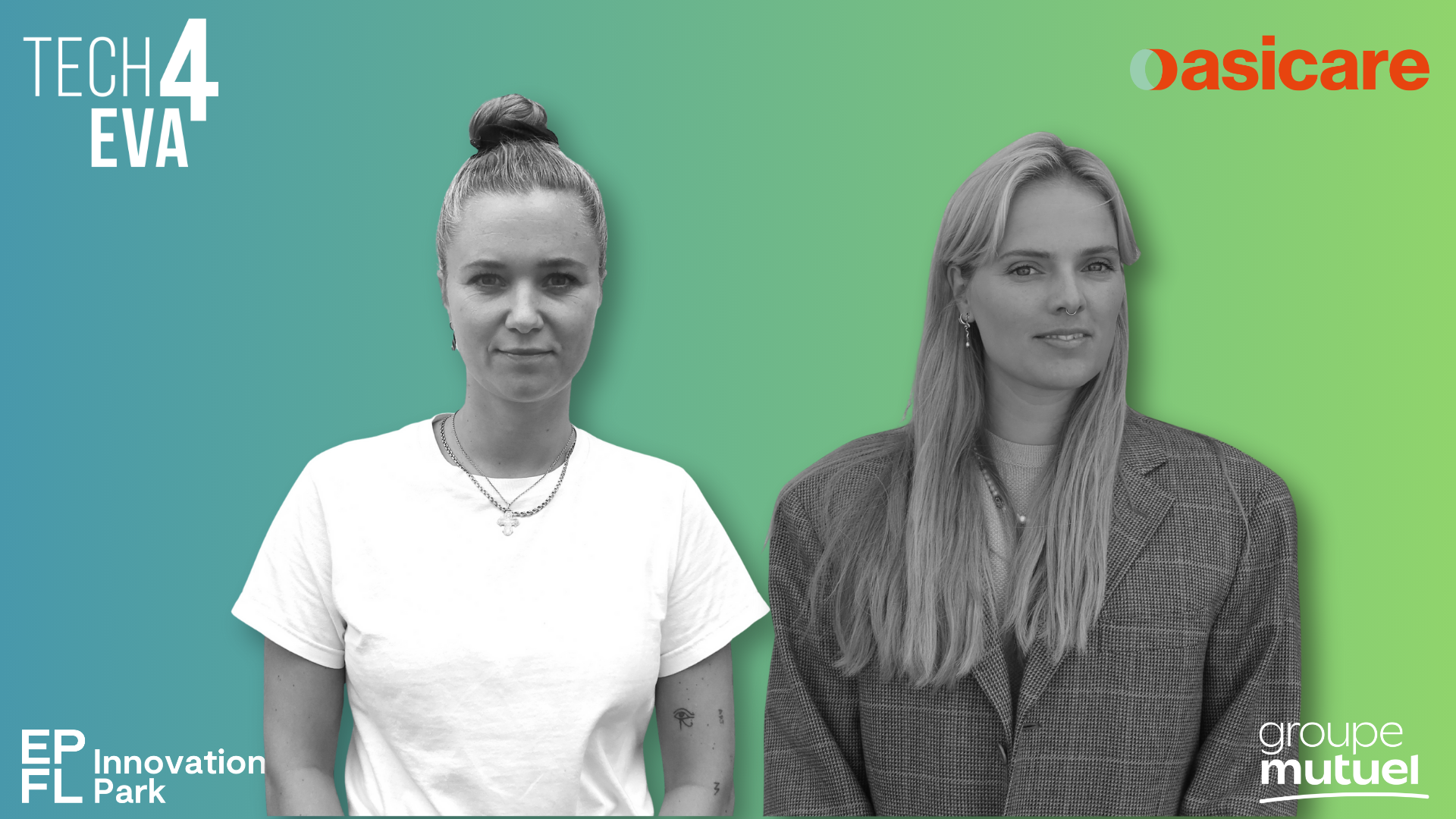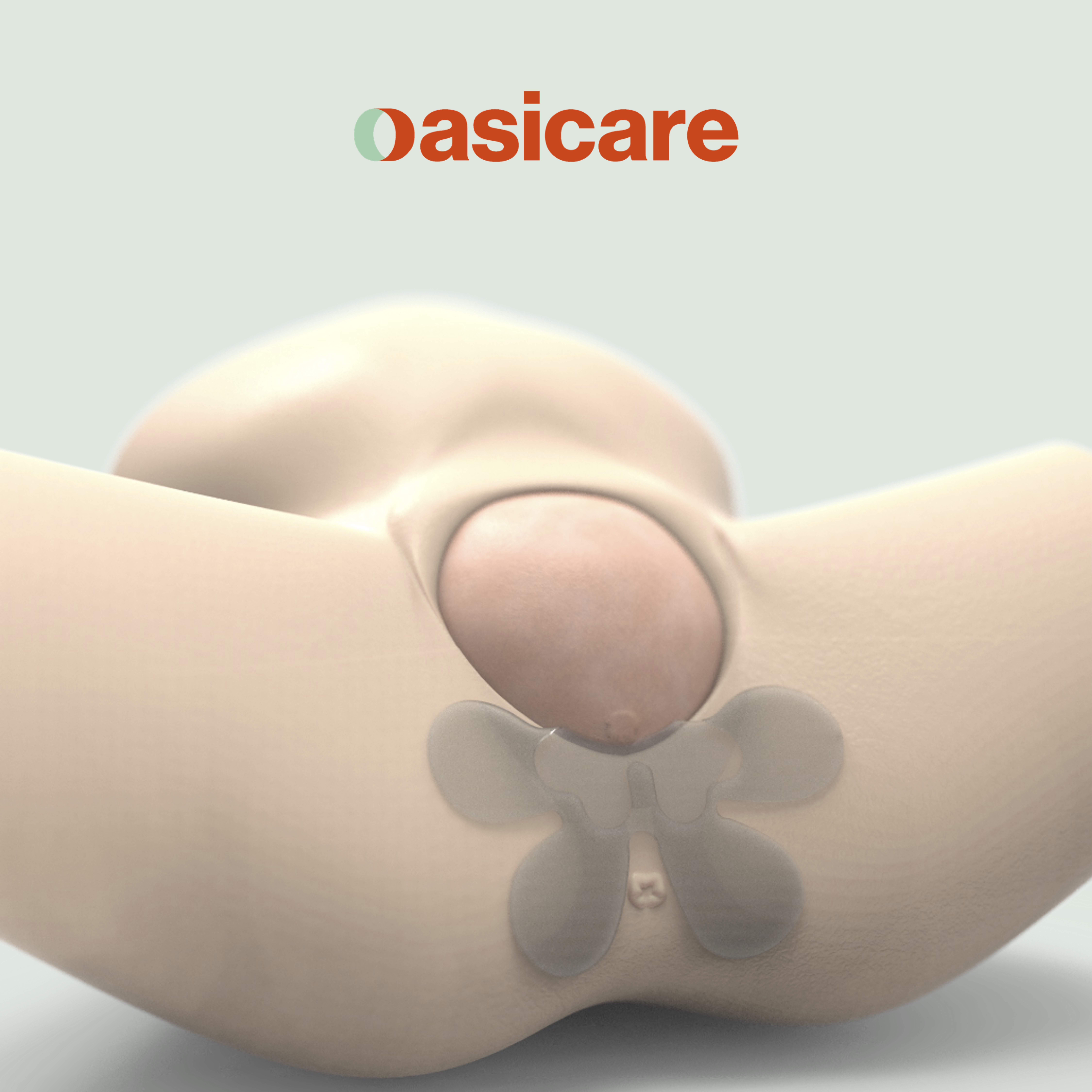
Transforming Childbirth Safety: Oasicare’s Solution to Perineal Trauma
Each year, an estimated 70 to 80 million women worldwide experience perineal trauma during vaginal childbirth—a painful and often life-altering injury. For the two women behind Oasicare, this statistic was not just a data point, but a call to action.
The start-up is developing a novel medical device designed to prevent perineal tears—a condition that affects 85% of women giving birth vaginally and often leads to complex muscle damage. These injuries can result in lasting physical, emotional, and even economic consequences. With an advanced adhesive and biomechanical design, Oasicare’s device is the first of its kind to offer both internal and external mechanical support during labor. Pre-clinical tests show a promising reduction in tissue stress by over 30%, and human trials are now underway in Denmark.
“Women’s health has long been underserved, especially in childbirth. We believe every woman has a right to a safe and respectful birthing experience, and that is what we are working to redesign,” said Co-Founders Ditte-Marie Fog Ibsen and Julia Sand.
Born From the Frontlines of Maternity Care
Ditte-Marie and Julia are not clinicians, but industrial designers with a deep background in medical device development. The idea for Oasicare was born unexpectedly while they were working on a separate project in a maternity ward. What they heard from midwives shocked them: perineal tears were not only routine but traumatic—for both patients and providers.
Motivated by these stories, and by a commitment to equitable healthcare for women, they sketched an early concept and quickly secured their first investment. Oasicare was launched full-time soon after, grounded in a belief that childbirth care should prioritize women, not just survival, not just the baby.
Designing for Dignity and Safety
The Oasicare device is currently in human trials in Danish hospitals and is designed to shield perineal tissue from over-stretching during birth. By 2026, the company aims to secure CE certification and scale across Northern and Western Europe, with India also in focus as a secondary market due to its high birth rates and growing attention to maternal care.

The device is easy to apply, integrates seamlessly into clinical workflows, and is developed with continuous input from midwives and obstetricians.
“Seeing midwives engage with the device and provide feedback has been a challenging but deeply rewarding journey – being able to build something that truly fits into the context of childbirth,” they share.
Tackling Taboo Topics with Data and Design
One of the toughest hurdles Oasicare has faced?Clinical conservatism and a lack of data. Perineal trauma is often underreported, and there are few digital models available to simulate and understand the condition.
To overcome this, Oasicare built strong clinical collaborations from the start and created its own digital simulations of perineal tears to validate its design in the absence of comprehensive data.
Looking Ahead: Preventive Care as the Future of Maternal Health
As awareness around maternal health grows, Oasicare’s Founders believe the future lies in prevention and non-invasive interventions. Their approach aligns with a broader shift toward improving maternal outcomes not only for patient well-being but also to lower long-term healthcare costs.
Their 100-patient clinical study launched in Q1 2025in Denmark’s largest maternity wards, a major milestone for the start-up.
Advice for the Next Generation of Founders
“Focus on empathy and evidence. Talk to patients and users, not just providers. Design for usability, not just efficacy,” advise Ditte-Marie and Julia. “And find your allies that believe in what you do and want to help you create the change. Women's health is underfunded, but the impact of innovation here is immense.”
Tech4Eva: A Community That Understands Women's Health
Oasicare has participated in multiple innovation programs—but Tech4Eva stands out.
“Tech4Eva has been the first program to offer truly specific and valuable support tailored to our sector. It understands the unique challenges and needs we face in this market,” the team reflects.
As Oasicare moves toward market launch, its mission remains clear: to prevent injury, preserve dignity, and bring better outcomes to millions of birthing women across the globe.
Learn more at www.oasi.care
